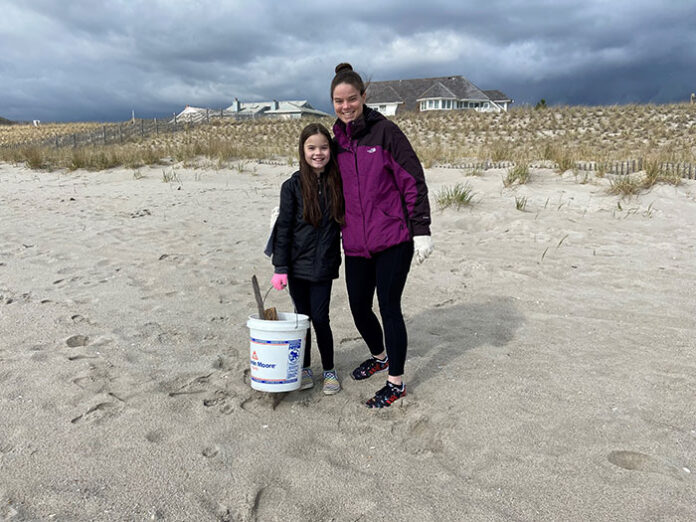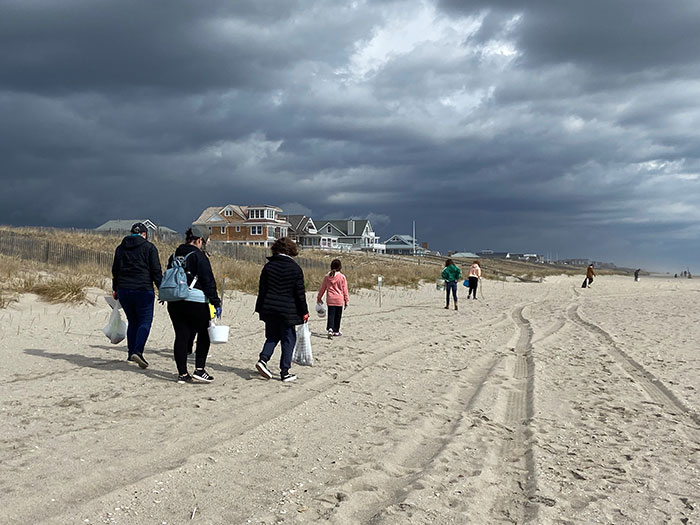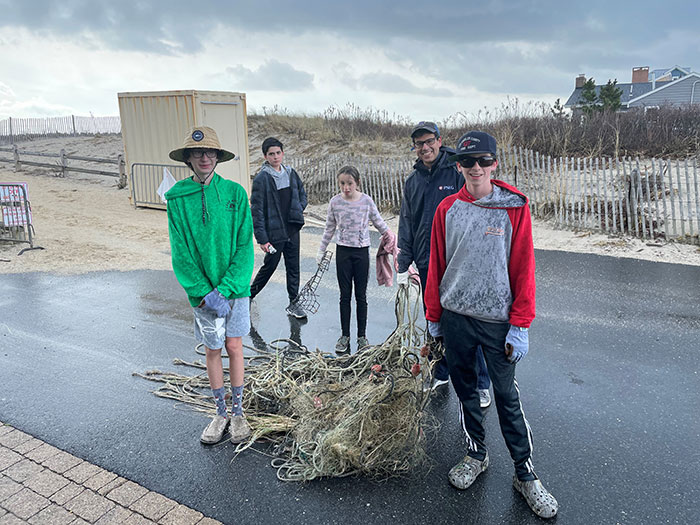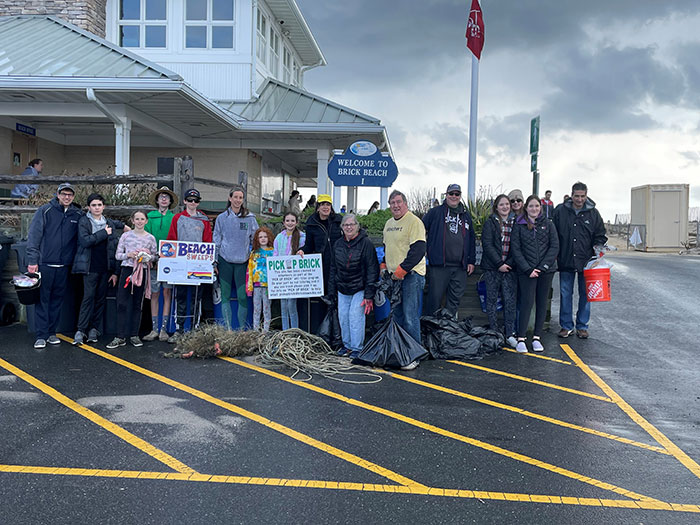
BRICK – Despite the rainy weather, residents of all ages came out to Jersey Shore beaches to remove harmful debris and keep the sandy shores clean.
Clean Ocean Action (COA) held their 37th Annual Beach Sweeps recently, with over 5,000 volunteers removing litter throughout 75 different sites across the state.
Clean Ocean Action is a leading national and regional voice working to protect waterways using science, law, research, education and citizen action. Their annual Beach Sweeps are held every April and October and are the state’s largest volunteer driven, citizen science and environmental event.
The goal of the Beach Sweeps is to make beaches safer for marine life and more enjoyable for people. In addition, the event collects data to provide information on how to change wasteful habits, enforce litter laws, improve policies and spread awareness to the public.

“While Mother Nature sent us some fickle weather, there was nothing fickle about the thousands of volunteers who turned out to give the Jersey Shore beaches a nice, clean sweep with fascinating finds,” Clean Ocean Action Executive Director Cindy Zipf said.
At Brick Beach I, over 40 volunteers spent the morning “sweeping” the beach to pick up trash and unwanted debris. Tony Kono, who is the Chairman of the Brick Township Environmental Commission, has been volunteering with COA’s Beach Sweeps as Beach Captain since 2012.
“Some of the common items we find on the beach are cigarette butts; until they banned them, we used to find a lot of the Juul pods but since they kind of stopped. More recently masks and rubber gloves, a little less now but certainly the past two beach sweeps there were a lot. A lot of plastic bags, straws, the plastic lids of cups, the cups themselves will disintegrate before they end up on the beach,” Kono said. “These are most of the main items. In the fall you’ll find more things such as flip fops because people have been on the beach. Even though Brick Township has a machine that cleans the beach, it can’t always get it all. Spring tends to be dirtier, but the fall tends to be more items people have left on the beach.”
Kono expressed why it’s so important to support and take part in environmental events like COA’s Beach Sweep.

“Man-made climate change is real. There’s a lot of things we can do to mitigate it. The trash on the beach isn’t necessarily contributing to the increase of temperature and the climate, but what it does is bring awareness that we are impacting the planet,” Kono said. “I always think that picking up the trash is important, because it gets young people on the beach seeing that man is impacting the environment. It makes them pick up the trash and put it in a bag so they can go back to their school mates and go ‘we’re doing a disservice to the Earth by treating it this way.’ Does it have to do with electric cars? Sure. Does it have to do with using renewable energy? Sure, it does. But this is a way to have it right in front of an average person’s face. This is the impact we’re having on the planet. It’s our duty to try to mitigate the best we can. It’s more about bringing awareness.”

Other locations such as Sandy Hook had a huge turnout, with nearly 500 volunteers collecting trash. According to a press release, the top five items found at this location included: 5,743 food, candy wrappers/bags; 5,052 plastic bottle caps/lids; 4,190 plastic pieces; 3,206 plastic straws/stirrers; and 1,157 foam pieces.
At Island Beach State Park, volunteers found some out-of-the-ordinary items like a bag full of letters and cards written in the Russian language.
To learn more about Clean Ocean Action and the Beach Sweeps, visit cleanoceanaction.org.






